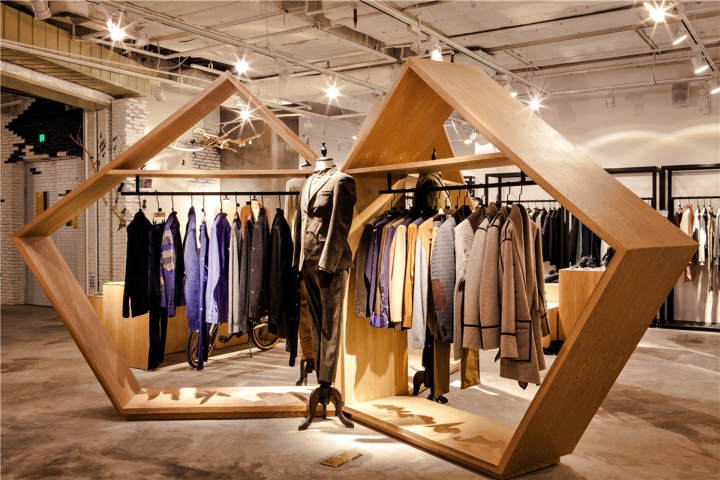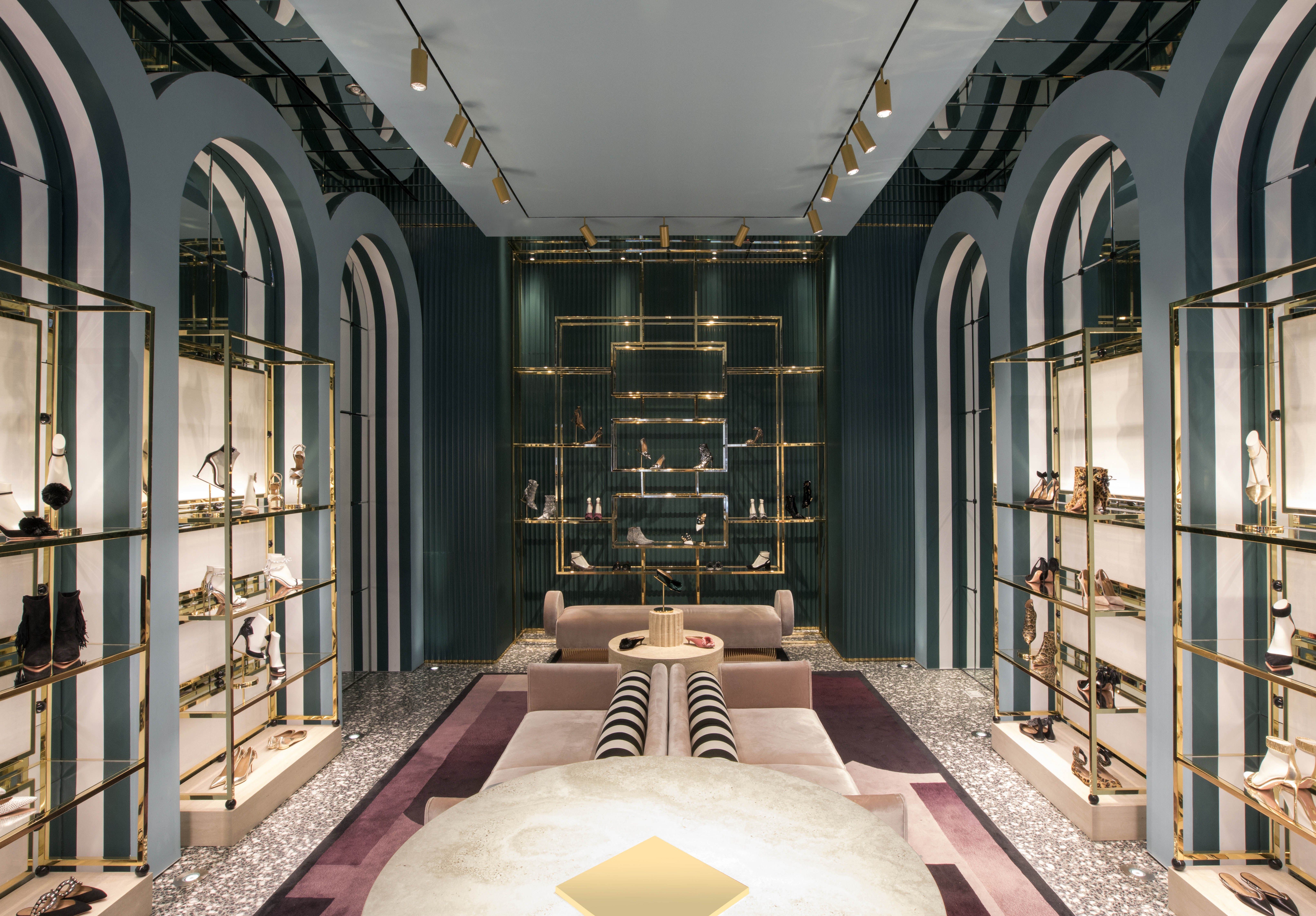Discovering the World of Sustainable Boutique Fashion Brands
Discovering the World of Sustainable Boutique Fashion Brands
Blog Article
Checking Out the Evolution and Impact of Apparel on Modern Fashion Trends
The evolution of clothing has significantly influenced contemporary fashion fads, merging historic precedents with advanced advancements. Famous figures like Coco Chanel and Yves Saint Laurent changed the style industry by introducing concepts that prioritize comfort and access, which remain to resonate today. Meanwhile, technological strides in locations such as 3D printing and clever fabrics are redefining layout opportunities and customer experiences. Furthermore, the expanding emphasis on inclusivity and sustainability is reshaping market criteria. As we consider these multifaceted impacts, one must question how these aspects jointly redefine fashion's duty in reflecting and forming modern culture.
Historic Fashion Influencers
In the tapestry of style background, particular numbers have actually left an indelible mark, forming the patterns and styles that specify whole eras. Coco Chanel, an advanced developer, redefined women's style by introducing comfy, sophisticated clothing that left from limiting corsets. Her renowned Chanel fit and little black dress have ended up being ageless staples in closets worldwide. Christian Dior's post-war "New Look" in 1947, with its celebration of womanhood through full skirts and cinched waistlines, noted a return to luxury and has actually continued to affect designers.
Elsa Schiaparelli is an additional pivotal figure, renowned for her avant-garde styles that incorporated surrealist art, teaming up with Salvador Dalí to develop whimsical items that tested conventional aesthetic appeals. Her cutting-edge use of shade and strong patterns reverberates in contemporary style. Yves Saint Laurent, on the other hand, democratized haute couture with prêt-à-porter collections, bringing path designs to the masses and establishing a precedent for contemporary ready-to-wear lines.
These enthusiasts, among others, not only reinvented style in their times yet additionally established enduring patterns that resonate in today's garment industry, supplying a foundation upon which modern-day developers proceed to introduce and build. Their traditions highlight the relevance of creative thinking and daring in vogue's ever-evolving story.
Technological Innovations in vogue
Amidst the vibrant landscape of the apparel industry, technical innovations stand at the leading edge of innovation, reshaping how designers produce and consumers involve with fashion. The combination of 3D printing has reinvented style procedures, allowing designers to try out complicated frameworks and sustainable materials that were previously unthinkable. This technology assists in rapid prototyping, decreasing waste and quickening production times.

Smart fabrics, installing modern technology into fabrics, are also changing the market. Developments like self-cleaning and temperature-regulating textiles offer enhanced performance and comfort. Wearable technology, integrating attributes like physical fitness monitoring and communication, adds a brand-new measurement to fashion, combining appearances with functionality.
Cultural Shifts and Style
As technical improvements continue to improve the apparel industry, cultural shifts are just as influential, redefining design and consumer choices. In current years, the rise of social media sites platforms has increased the dissemination of global style trends, permitting varied cultural influences to go to this web-site exist side-by-side and assemble. This digital interconnectivity has actually helped with the quick exchange of ideas, resulting in a more inclusive and eclectic analysis of style that mirrors the multifaceted nature of modern-day culture.
Cultural awareness and admiration have actually prompted designers to attract ideas from a wider spectrum of historical and ethnic contexts, incorporating typical concepts with modern appearances. This combination has actually led to style that reverberates with a broader target market, promoting a sense of identity and belonging across various demographics. Additionally, the boosting need for personalization has driven brands to supply personalized choices, enabling consumers to reveal originality while mirroring their cultural heritage.
Moreover, changing societal worths have impacted fashion, with inclusivity and diversity becoming main styles. The industry has actually begun to welcome models and influencers of various body kinds, ethnic cultures, and sex identities, tough conventional beauty standards. This makeover underscores the power of cultural changes in forming the future of fashion, as style becomes a more genuine expression of individual and collective identification.
Sustainability and Modern Style
While the fashion business proceeds to develop, the imperative for sustainability has actually become increasingly urgent, affecting modern-day layout techniques. This change intends to deal with moral considerations and ecological concerns, resulting in a reevaluation of conventional production methods. Developers are currently incorporating sustainable materials, such as natural cotton, recycled polyester, and biodegradable textiles, right into their collections, reducing the ecological footprint of style. The surge of slow-moving style, which emphasizes top quality over quantity, motivates consumers to buy classic pieces rather than short-term trends.
In addition, modern-day style is characterized by its innovation in lessening waste and promoting circularity. This approach not just minimizes ecological effect however likewise boosts the social obligation of fashion houses.

Future Trends in Fashion

Sustainability will certainly remain to be a driving force in forming future fashion fads. The industry is significantly adopting environment-friendly products and ethical manufacturing methods, reacting to an expanding customer need for accountable techniques. Innovations such as bio-fabricated materials and closed-loop recycling systems are readied to redefine just how garments is generated and taken in, lowering ecological impact while keeping design and top quality.
Social shifts, consisting of the increase of inclusivity and diversity, will certainly likewise play a pivotal role. As culture comes to be extra aware of social problems, style is anticipated to become a system for expression and adjustment. Designers will likely concentrate on producing collections that show a broader variety of experiences and identifications, championing depiction and access.
Conclusion
The development of clothes considerably affects modern fashion trends, where historic influences merge with modern layouts. Secret figures like Coco Chanel and Yves Saint Laurent have actually redefined design, while technical advancements such as 3D printing and clever fabrics increase creative possibilities. Cultural changes in the direction of inclusivity and sustainability compel brands to welcome and adopt ethical techniques diversity. This recurring advancement emphasizes fashion's duty as a mirror to societal values and technical improvement, suggesting a future abundant with technology and inclusivity.
The development of clothing has actually substantially affected modern style patterns, combining historical criteria with cutting-edge technologies.In the explanation middle of the dynamic landscape of the style market, technological innovations stand at the leading edge of technology, reshaping how designers produce and consumers engage with fashion.While the style industry proceeds to evolve, the imperative for sustainability has ended up being significantly immediate, influencing contemporary design practices. As sustainability ends up being embedded in modern layout, it leads the means for a more mindful and accountable style industry.
The advancement of apparel dramatically affects modern-day fashion trends, where historical influences merge with modern styles.
Report this page